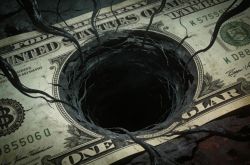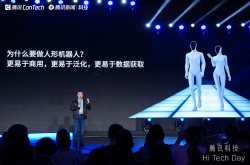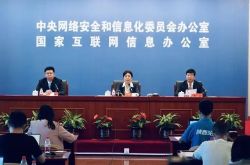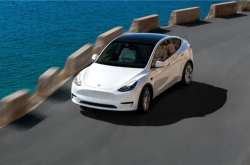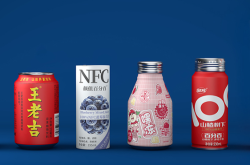The more intense the competition, the more painful it becomes. How should this disorderly "internal competition" end?
![]() 06/25 2024
06/25 2024
![]() 471
471
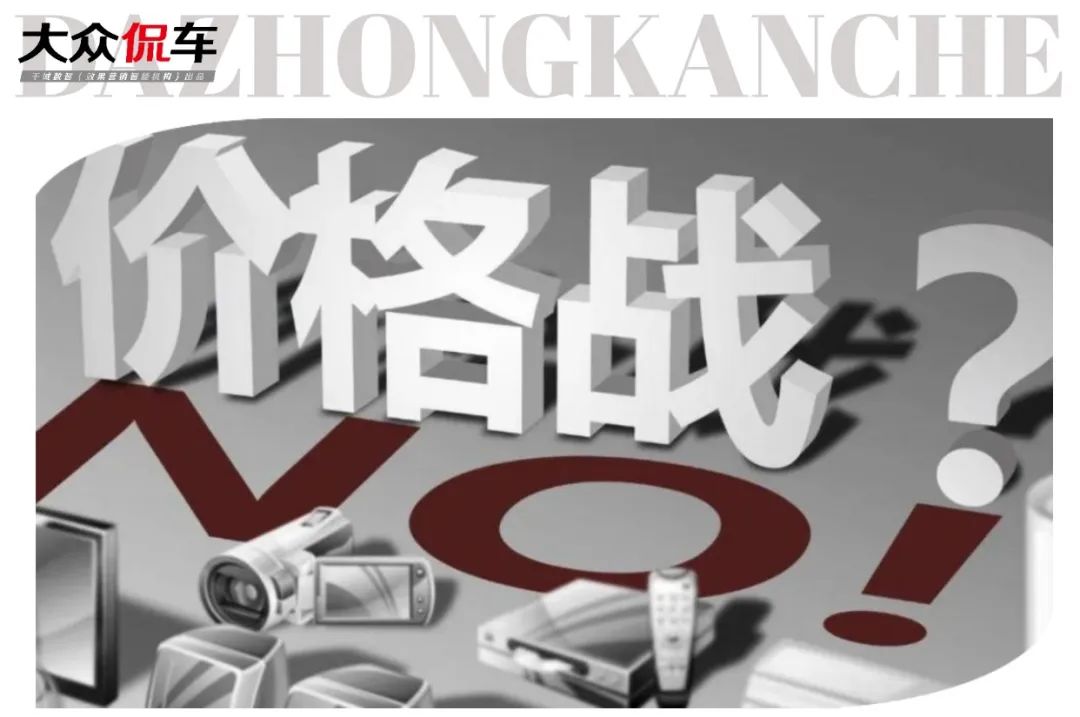
Since entering 2024, the "internal competition" in the Chinese automobile market has escalated, from originally only focusing on price competition to now including price, technology, traffic, company executives, and personal IP. A brutal and continuous internal war has already begun.
The 2024 China Automobile Chongqing Forum added a spark to the "internal competition" in the Chinese automotive industry, once again prompting the auto market to rethink, "What can internal competition bring?" and "Is it a healthy or unhealthy competition?"
Wang Jun, President of Changan Automobile, said, "Excessive competition will drive out good money with bad." Wang Chuanfu, Chairman and President of BYD, believes that "internal competition will give rise to world-class brands belonging to China." Li Shufu, Chairman of Geely Automobile, believes that internal competition has two sides. "The degree of internal competition in China's auto industry is the highest in the world, with price wars getting more intense every day, unparalleled. This phenomenon is both good and bad."
Zeng Qinghong, Chairman of GAC Group, stated, "There should be a broader perspective, a long-term strategic mindset, rather than focusing on the short-term competition. Enterprises with no benefits cannot survive."
They have different views on "internal competition." Some are optimistic, while others are pessimistic. Now, it is impossible to predict whether the future of internal competition is promising or whether it can cultivate world-class brands. However, for now, the competition in the Chinese auto market has turned into "internal consumption," and endless internal competition has become disorderly.
Who is the culprit of the "internal competition" in the Chinese auto market? What does this disorderly "internal competition" bring to the auto market? How should this "internal competition" end? Wei Jinqiao, the founder of Auto Commune, Guo Dengli, the founder of Volkswagen Talk, Xu Feng, the founder of Tiantian Auto, and He Qiuhui from Qiyan Community jointly launched a four-lane live broadcast to discuss this issue in depth.
Who is the culprit?
Why should we explore who is the culprit and the core of internal competition? The reason is that the Chinese auto market is declining in the midst of internal competition.
According to data previously released by the Secretary-General of the China Passenger Car Association, Cui Dongshu, the sales profit margin of the automotive industry from January to April 2024 was 4.6%, at a historical low. This figure was only 5% in 2023, and the downward trend is a warning.
Wei Jinqiao of Auto Commune predicts that there will be a slight decline in sales in the Chinese auto market in the first half of this year. If this happens, it will mean that the Chinese auto market has regressed to the level of 2020, when the COVID-19 pandemic broke out.
If "internal competition" causes the Chinese auto market to fall into a vortex again, then car manufacturers must start looking for the culprit of "internal competition."

This year, under the anxious situation of the entire auto market, everyone has pointed the finger at BYD, with two main reasons.
Firstly, BYD is the initiator of this year's price war. If we carefully sort out the "internal competition" war in 2024, there is one car company that cannot avoid, and that is BYD. Whether it's launching the Qin PLUS and destroyer 05 dual car Honor Edition for 79800 yuan, rolling the price below 100000 yuan, or shouting the slogan "electricity is lower than fuel", traditional fuel powered cars have been shocked and refuted one after another. BYD has kicked off the "internal competition" in the Chinese automotive market in 2024.
Secondly, in such difficult circumstances, it still relies on its strong cost control ability to become a beneficiary of internal competition. In terms of sales, BYD ranked first with a sales record of 253000 units in May. From January to May, BYD became the only car company with sales exceeding one million. In terms of profit, in the first quarter, BYD's gross profit margin reached 21.88%, significantly leading other domestic independent brand car companies.
Is BYD really the culprit?
Wei Jinqiao pointed out that "the winner is often a thorn in the side, whether BYD is willing or not, it has become a public enemy in the eyes of everyone in the industry."
Public enemy is not a derogatory term, it precisely proves its ability. It can be said that BYD is a public enemy, but it cannot be said that it is the culprit. "The process of internal competition is not simply caused by BYD, BYD is just a result," said Xu Feng of Tiantian Automobile.
He believes that if you want to judge who is the culprit, you first need to know who broke the rules of the industry first. Xu Feng gave five examples of this.
Firstly, the auto show has become a showcase for fans and internet celebrities to interact with, with media and exhibition cars standing on the sidelines. Secondly, new brands start selling cars without their own service system and spare parts system. Thirdly, car owners collectively protect their rights and are directly won by (manufacturers) with their reputation rights. Fourthly, emerging car companies loudly call for the future business model to be hardware free and software paid. Fifth, fan marketing, water army mutual blackmail.
When these problems arise, "internal competition" has become disorderly, and regardless of who is the public enemy, continuous "internal competition" will inevitably bring harm.
On the one hand, the destruction of the value chain and the reduction of security standards. "If we continue to maintain low prices and high costs, it will inevitably lead to the destruction of the entire supply chain value." Wei Jinqiao said, "If an industry or enterprise has no profit, it must not be sustainable. If it has no profit for a long time, it will cut corners, reduce the overall quality, configuration safety, and even the entire design standards."
On the other hand, host manufacturers, distributors, and consumers are all victims. "The profits of OEMs and dealers have decreased, and consumers have also suffered a significant depreciation in the value of their vehicles. The previous wave of users have become victims," said He Qiuhui from the Automotive Research Press.
So all the teachers are calling on the Chinese automotive market to treat "internal competition" correctly.
Wei Jinqiao stated that the development of Chinese automobiles has deviated from its growth trajectory. Whether it is Tesla, Xiaomi, or BYD as the initiators, it is questionable. Currently, the actions or competitive behavior of car companies have exceeded rationality and commercial value itself.
"We don't want a price war to ruin the electrification achievements established by Chinese cars in the past three years or so," said Wei Jinqiao.
Dr. Guo Dengli from Volkswagen Kanche also said, "Our goal is not to find out who is the culprit of the competition, but to call on Chinese car companies not to continue to be chaotic and engage in internal conflicts, especially in critical times of globalization, and not to have internal and external troubles."
How does it end?
If we delve deeper into the core reasons for "involution", the Great Leap Forward development of the Chinese automotive market in the past two years cannot be separated from it.
For example, in 2021, relevant media reported on the sales plans of various car companies for 2025. The total annual sales target for each car company in 2025 is expected to be 120 million vehicles. It is almost impossible to complete such a amount in just five years. It is worth noting that in 2023, China's automobile production and sales exceeded the 30 million mark for the first time, which is only a quarter of the total 120 million vehicles.
Although some car companies have disappeared from the market in recent years, this reflects their overconfidence in the future, and the difficult to achieve goals have given rise to anxiety.
More importantly, official industry associations have also begun to fall into an impossible sales volume. Wei Jinqiao pointed out that "the Chinese automotive industry should not disregard the current constraints of many industries, such as industry capabilities, technological capabilities, talent reserves, supporting facilities, and the country's consumption capacity, to achieve a certain penetration rate target through the Great Leap Forward. This is a great misunderstanding and also causes anxiety for the entire group of the Chinese automotive market."
A car media professional who has been in the industry for 25 years said, "Due to competition, the entire industry is a bit chaotic, full of resentment and resentment. They fight each other every day, offer rewards every day to capture their opponents, and hold a press conference. Most of the time, they are not releasing technology and products, nor discussing strategies and tactics, but venting emotions, accusing and even insulting their opponents."
The public is saying that "involution" has become a farce, and if it continues like this, it will ultimately destroy the achievements of Chinese cars in overtaking on new energy curves.
How should this "involution" farce end? Four teachers gave their own suggestions.
Xu Feng stated that the trend of free competition and survival of the fittest will not change, but currently, the trend of China's group heating has matured. Currently, oil and electricity sharing and internationalization will be two ways to break the deadlock.
Dr. Guo Dengli provides three suggestions: Firstly, relevant national departments can take the lead in integrating low efficiency enterprises such as service and investment, and utilizing their respective high-quality resources to complement each other. Secondly, we will severely punish enterprises that engage in fraud and cut corners. Thirdly, we must strictly prevent individual enterprises from boasting and violating advertising laws every day.
Wei Jinqiao first affirmed that the emergence of public enemies is a result of market competition, and then equally stated that such non-standard behaviors that exaggerate extravagance or cause the entire car to fall into a group of restlessness should be effectively curbed.
"The automobile market can be rolled up, but it should be rolled up in a sunny and open manner," He Qiuhui pointed out what is the correct roll. He gave three suggestions: first, do not engage in nepotism; second, entrust professional matters to professionals. Internet celebrities who do not understand the industry should speak with caution and not distort facts through fan influence; Thirdly, marketing should be solid and not emotional.
In summary, rapid reshuffling and survival of the fittest are not the principles of market competition. However, both car companies and the media should not engage in emotional struggles, show off their words quickly, and fall into the trap of injustice among their peers, making the Chinese car market a venue for various car companies to vent their emotions.


